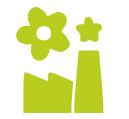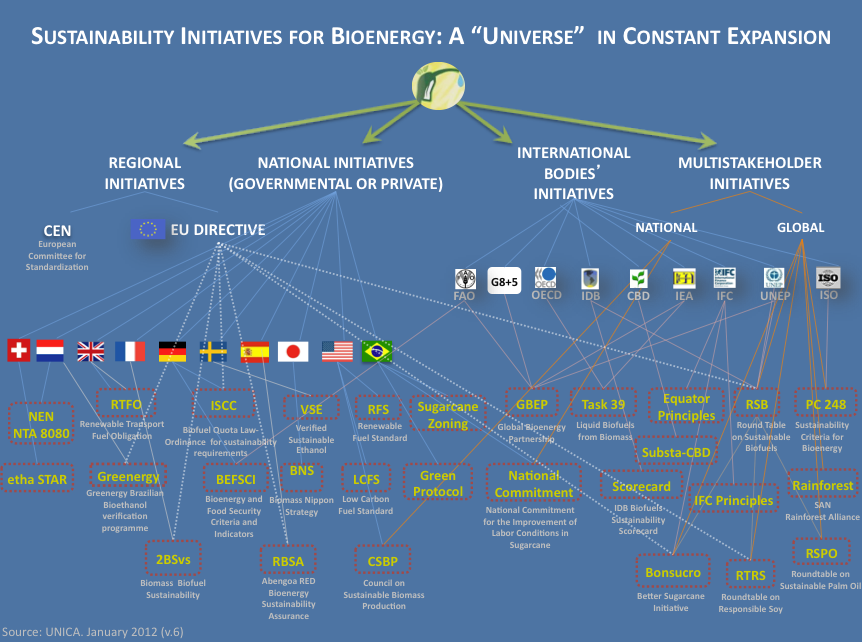Sustainability Certification & Reporting
 Certification of sustainable production processes is on the rise as many manufacturers seek to show customers that their products have been produced in a sustainable way, respecting clearly-defined environmental, social and economic criteria.
Certification of sustainable production processes is on the rise as many manufacturers seek to show customers that their products have been produced in a sustainable way, respecting clearly-defined environmental, social and economic criteria.
Although a non-certified product is not necessarily unsustainable – especially if produced in a country like Brazil where stringent social and environmental legislation applies – certification can be an important instrument to differentiate products and influence consumer-purchasing decisions.
CERTIFIED SUGARCANE
The Brazilian Sugarcane Industry Association (UNICA) actively supports BONSUCRO, a global multi-stakeholder non-profit initiative dedicated to reducing the environmental and social impacts of sugarcane production. The group operates under a standard that measures these impacts accurately while certifying sustainable practices. Since the official launch of the BONSUCRO certification system in July 2011, sixty Brazilian mills have been certified by BONSUCRO.
BONSUCRO is one of the fifteen programs that have been officially approved by the European Union as compliant with the mandatory sustainability criteria that all biofuels commercialized in Europe must fulfill. Today, 8.7% of the Brazilian total sugarcane area (886,905 ha) is EU Bonsucro certified.
SUSTAINABILITY REPORTING
Transparency and continuous improvement are key elements for the Brazilian sugarcane industry to develop in a sustainable way. To this end, UNICA publishes a sustainability report on a regular basis. The 2010 report was prepared in accordance to the G3 Guidelines of the Global Reporting Initiative (GRI) and met the highest qualification level (A+). Its publication represented a major milestone in the development of the Brazilian sugar-energy sector.
Some 90 sugar and ethanol mills provided information for UNICA’s 2010 GRI report. Additionally, more than a 100 mills are now producing their own GRI reports, showing that reporting on sustainable practices is more and more integrated in the global strategy of sugarcane companies.
UNICA was the first Brazilian association to publish a sustainability report based on the GRI guidelines in 2008.
COUNTERPRODUCTIVE PROLIFERATION OF SUSTAINABILITY INITIATIVES
In recent years, the number of voluntary and mandatory sustainability initiatives targeting biofuels has multiplied. This proliferation is counterproductive and might end up discouraging investments. The possibility that many of these requirements may foster trade barriers is a legitimate cause for concern, especially in developing countries. Brazil, for instance, is the world’s second largest producer and top exporter of ethanol.
To be effective and guard against unintended consequences, the development of a certification system must be transparent, gradual and non-discriminatory. Criteria have to be objective, measurable and universally applicable. The required standards, as well as their verification methods, must also be based on sound scientific methods and empirical evidence. Too much complexity should be avoided, as should any subjective qualitative approaches that might conceal protectionist intentions and value judgments.
WHAT'S NEW
Sugarcane harvest for South Central Brazil for the second half of November 2020 Read on
